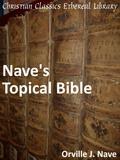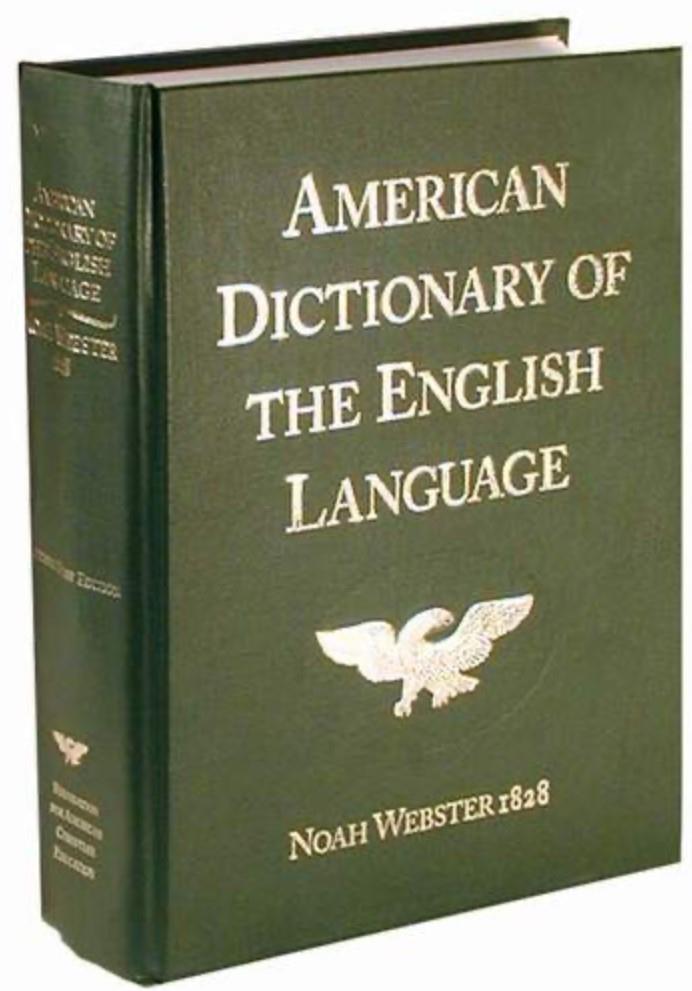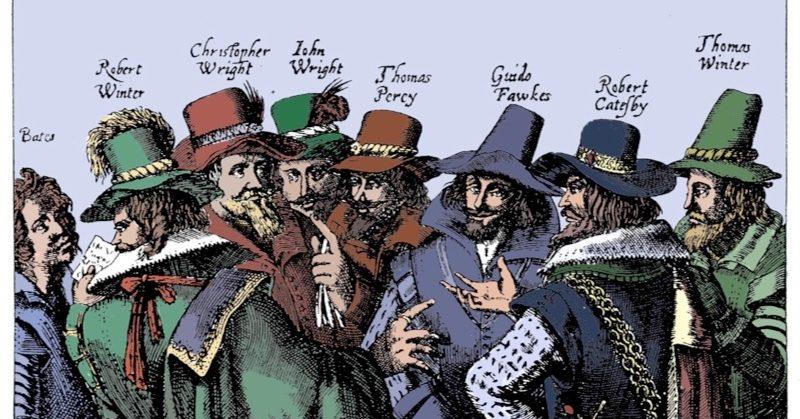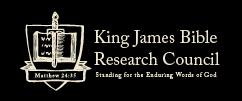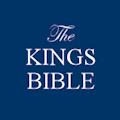The King James Bible

James L. Melton
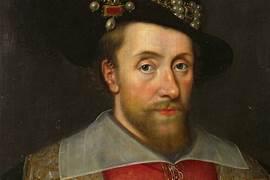
The Gun Power Plot of 1605
Evidence you have the Cambridge King James Bible
GENESIS 1:1 heaven heavens
GENESIS 1:2 Capital S (Spirit) lower case s (spirit)
GENESIS 8:1 asswaged assuaged
GENESIS 11:3 throughly thoroughly
GENESIS 11:3 morter mortar
GENESIS 12:1 shew show
GENESIS 21:26 to day today
GENESIS 23:8 intreat entreat
GENESIS 24:57 enquire inquire
GENESIS 30:37 chesnut chestnut
GENESIS 31:42 labour labor
GENESIS 41:38 Capital S (Spirit) lower case s (spirit)
EXODUS 8:23 to morrow tomorrow
EXODUS 24:6 basons basins
EXODUS 25:30 shewbread showbread
EXODUS 25:30 alway always
LEVITICUS 25:9 jubile jubilee
NUMBERS 10:25 rereward rearward
NUMBERS 22:26 further farther
JOSHUA 19:2 or Sheba and Sheba
1st SAMUEL 18:6 musick music
2nd CHRONICLES 33:19 sin sins
Job 33:4 Capital S (Spirit) lower case s (spirit)
PSALMS 149:6 twoedged two-edged
ISAIAH 59:17 cloke cloak
JEREMIAH 34:16 whom ye whom he
EZEKIEL 11:24 Capital S (Spirit) lower case s (spirit)
NAHUM 3:16 flieth fleeth
MATTHEW 1:19 publick public
MATTHEW 4:1 Capital S (Spirit) lower case s (spirit)
MATTHEW 26:39 further farther
MATTHEW 26:73 bewrayeth betrayeth
MARK 1:12 Capital S (Spirit) lower case s (spirit)
LUKE 2:11 Saviour Savior
ACTS 11:28 lower case s (spirit) Capital S (Spirit)
PHILIPPIANS 3:17 ensample example
1st TIMOTHY 6:20 so called so-called
JAMES 4:14 vapour vapor
1st JOHN 5:8 lower case s (spirit) Capital S (Spirit)
GENESIS 1:2 Capital S (Spirit) lower case s (spirit)
GENESIS 8:1 asswaged assuaged
GENESIS 11:3 throughly thoroughly
GENESIS 11:3 morter mortar
GENESIS 12:1 shew show
GENESIS 21:26 to day today
GENESIS 23:8 intreat entreat
GENESIS 24:57 enquire inquire
GENESIS 30:37 chesnut chestnut
GENESIS 31:42 labour labor
GENESIS 41:38 Capital S (Spirit) lower case s (spirit)
EXODUS 8:23 to morrow tomorrow
EXODUS 24:6 basons basins
EXODUS 25:30 shewbread showbread
EXODUS 25:30 alway always
LEVITICUS 25:9 jubile jubilee
NUMBERS 10:25 rereward rearward
NUMBERS 22:26 further farther
JOSHUA 19:2 or Sheba and Sheba
1st SAMUEL 18:6 musick music
2nd CHRONICLES 33:19 sin sins
Job 33:4 Capital S (Spirit) lower case s (spirit)
PSALMS 149:6 twoedged two-edged
ISAIAH 59:17 cloke cloak
JEREMIAH 34:16 whom ye whom he
EZEKIEL 11:24 Capital S (Spirit) lower case s (spirit)
NAHUM 3:16 flieth fleeth
MATTHEW 1:19 publick public
MATTHEW 4:1 Capital S (Spirit) lower case s (spirit)
MATTHEW 26:39 further farther
MATTHEW 26:73 bewrayeth betrayeth
MARK 1:12 Capital S (Spirit) lower case s (spirit)
LUKE 2:11 Saviour Savior
ACTS 11:28 lower case s (spirit) Capital S (Spirit)
PHILIPPIANS 3:17 ensample example
1st TIMOTHY 6:20 so called so-called
JAMES 4:14 vapour vapor
1st JOHN 5:8 lower case s (spirit) Capital S (Spirit)
It is important to have the correct, perfect text of the King James Bible, since there are correctors (e.g. publishers) that have changed words in the King James Bible. The completed form of the King James Bible is the Pure Cambridge Edition (around 1900), which conforms to the following:

AN INFANT KING.
James Charles Stuart was born on June 19, 1566 at Edinburg Castle in Scotland. His father, Lord Darnley, was murdered in early 1567 before young James was 1 year old. His mother, Mary Queen of Scots, was soon afterwards forced to abdicate the Scottish throne due to her suspected involvement in the murder. Little James was crowned King James VI of Scotland at the tender age of 13 months. Reformation leader John Knox preached the sermon at his coronation.
James' mother, Mary, was imprisoned in England by her cousin Queen Elizabeth and 19 years later, in February of 1587, was executed for her part in a Roman Catholic conspiracy to assassinate Queen Elizabeth.
And so, like many monarchs of the time, King James was reared by neither father nor mother (although he did maintain an ongoing correspondence with his mother. He said that she never tried to convert him to her religion.). Of his four tutors, perhaps one of the most influential was George Buchanan, a staunch Calvinist. It was under Mr. Buchanan's strict teaching methods that King James became one of the most learned and intellectually curious men to ever sit on any throne. Mr. Buchanan was 64 years old when he began tutoring the young king.
It was Greek before breakfast then Latin and history, composition, arithmetic cosmography, dialectics, rhetoric and of course, theology. King James spoke fluent Greek, Latin, French, English, and Scots and was schooled in Italian and Spanish. The King once remarked, that he could speak Latin before he could speak his native Scots. Because of his linguistic capabilities, King James typically did not need a translator when conducting business with other heads of state.
King James grew into a powerful king with a powerful pen--he had peace at home and abroad. Cambridge Texts in the History of Political Thought King James VI and I Political Writings notes that the King's writings were among the most important and influential British writings of their period. King James has long been known for his great learning and even in his own time was known as Great Britain's Solomon.
KING JAMES BEGINS TO REIGN IN HIS NATIVE SCOTLAND.
According to his Workes of 1616 (a collection of the king's writings), King James began to rule his native Scotland when he was 12 years old. Then in 1589 he took Anne of Denmark to be his queen. King James loved his wife and wrote beautiful poetry for her. Together they had nine children. Once, when the King and Queen were out hunting, Queen Anne accidentally killed the King's favorite hunting dog, Jewell. The Queen felt badly about this and the King bought her a gift to ease her mind of this incident.
In order to pass on his kingly instruction to his eldest son, Prince Henry, King James wrote Basilicon Doron which means, "the Kingly Gift". Basilicon Doron was not meant for general publication, but for the instruction of the young prince in the likely event that his father would not survive to instruct him--King James was sickly and survived a number of assasination attempts. The King bound his printer Robert Waldegrave to secrecy and ordered an edition of only seven copies. Somehow, however, intelligence of the book and its contents got abroad.
Subsequently, there was so much demand for Basilicon Doron that forged, corrupted copies were being distributed. With these pressures, the King then had it published for the general public and it became a bestseller. It was published in English, Welsh, Latin, French, Swedish and German for a period of over 50 years.
Basilicon Doron is a short treatise, only 153 pages long. It consists of three short volumes, the first of which is "A King's Christian Duetie Towards God." James D'israeli said, "James had formed the most elevated conception of the virtues and duties of a monarch."
In Basilicon Doron, King James' understanding of Christian discipleship, style and prose are at their best. He skillfully intertwines sacred scripture with godly and Christian advice. The King offers his son this important advice on knowing God:
"Diligently read his word, & earnestly...pray for the right understanding thereof. Search the scriptures saith Christ for they will bear testimony of me. The whole Scriptures saith Paul are profitable to teach, to improve, to correct, and to instruct in righteousness, that the man of God may be perfect unto all good works.
"The whole Scripture contayneth but two things: a command and a prohibition. Obey in both... The worship of God is wholy grounded upon the Scripture, quickened by faith."
--King James
Basilicon Doron
THE KING UNITES THE ENGLISH AND SCOTTISH CROWNS.
King James' great aspiration to be the first King of both Scotland and England was realized in 1603 upon the death of Queen Elizabeth. When he ascended to the English throne that year he had already been king of Scotland for 36 years. He was now known as King James VI of Scotland & I of England.
THE KING HAD MANY ENEMIES.
Roman Catholics attempted to assassinate King James in 1605 in what is known as the Gunpowder Plot. In the plot, Guy Fawkes and other Catholics designed to blow up, via gunpowder, the king and the entire British Parliament. As related in King James' Workes, the conspiracy was miraculously discovered. According to King James in his treatise entitled, "A Catalogue of the Lyes of Tortvs, Together With A Briefe Confutation of Them" (Workes page 340) it was not any "just occasion of despaire giuen [given] to the Powder-Traitours...but the instructions which they had from the Iesuits [Jesuits], that caused them to attempt this bloody designe: See the Premonition, pag. 291 & 335. and the booke intituled, The proceedings against the late Traitours." This failed attempt to murder King James is still remembered each year in England on November 5 and is known as Guy Fawkes Night.
Excerpt from our index page--
A look at the Gunpowder Plot of 1605 can direct the attention as to what has been happening in the earth. (During the Gunpowder Plot, Roman Catholics tried to kill King James, his wife, his son, and the entire British Parliament. (According to King James, Roman Catholic clergy (specifically Jesuits) were the chief conspirators in the Gunpowder Plot (see Remonstrance for the right of Kings (Workes, p. 381). The Gunpowder Plot is an example of classic Roman Catholic recusancy. This link puts the Gunpowder Plot in historical perspective and addresses some of what happened after the Plot unto current times.) It includes a link to information on the "common good" which is being spoken about these days.)
King James was an evangelist of the true gospel, which automatically made him an enemy of Rome. He identified the pope as antichrist. King James strongly delineated the errors of Roman superstition and spurned them, yet he treated Roman Catholic subjects fairly. Catholic ambassador Nicolo Molin said this of King James:
"He is a Protestant...the King tries to extend his Protestant religion to the whole island. The King is a bitter enemy of our religion. He frequently speaks of it in terms of contempt. He is all the harsher because of this last conspiracy against his life...He understood that the Jesuits had a hand in it."
As a Scotsman ruling over the English, the King endured much racism and slander--especially from the once powerful English Lords and Ladies who he replaced with his Scottish countrymen. Unfortunately, many of today's historians look to the writings of hostile sources such as Sir Anthony Weldon and Francis Osborne as accurate descriptions of the king.
One of the king's detractors, Sir Anthony Weldon, was knighted by King James but was subsequently dismissed after King James found racist writings by Weldon about the King's native Scotland (e.g., "A Perfect Description of the People and Country of Scotland"). Many historians today quote Weldon and other hostile sources as they attack the character and person of King James, but a rumor does not make a man guilty of anything--even if that rumor is spread amongst "scholars". King James' enemies were at work while he was still alive. The king wrote of his enemies:
"They quarrel me (not for any evil or vice in me) but because I was a king, which they thought the highest evil, and because they were ashamed to profess this quarrel they were busy to look narrowly in all my actions, and I warrant you a moat in my eye, yes a false report was matter enough for them to work upon."
--James I, Basilicon Doron
Notwithstanding the calumniations of his detractors, King James the VI of Scotland and I of England was a highly successful King. He kept his kingdom out of war and wielded effective authority over the more far-flung areas of the realm where there had been troubles historically. There was peace during his reign--both with his subjects and with foreign powers. His motto was "Beati Pacifici,"--Blessed are the peacemakers.
KING JAMES AND THE DIVINE RIGHT OF KINGS.
The following is excerpted from "King James VI & I and the Divine Right of Kings"--
In the minds of many, the doctrine of the Divine Right of Kings is closely (if not exclusively) associated with King James VI & I. It is important to note, however, that the Divine Right of Kings (the idea that kings are accountable to God alone), neither began nor ended with King James Charles Stuart. If we go back 300 years before the birth of King James, we find this doctrine in the writings of Henry of Bratton, a.k.a. Bracton, an English judge who wrote on English jurisprudence. If we go forward 15 years after the king's death, we find the doctrine of the Divine Right of Kings in the 1640 Decree of the Clergy on Regal Power (see, Sources of English Constitutional History by Stephenson & Marcham, 1972 ed., p. 491).
Author Stephen Coston notes--
"With respect to the doctrine of the Divine Right of Kings, this doctrine was the principal force restraining the authority of the Popes in James' time and thereafter...[W]ithout the doctrine of the Divine Right, Roman Catholicism would have dominated history well beyond its current employment in the Dark Ages. Furthermore, Divine Right made it possible for the Protestant Reformation in England to take place, mature and spread to the rest of the globe.
"I also suspect that many...individuals who depreciate His Majesty King James VI & I also criticize his belief in the Royal Prerogative. They like to praise Queen Elizabeth I, yet forget that she was as strong, if not more so, in her belief in the Royal Prerogative than was His Majesty King James VI & I: She wrote to her last Parliament in 1601:
"The Royal Prerogative was not to be canvassed, nor disputed, nor examined, and did not even admit of any limitation, that it was in vain to attempt tying the Queen's hands by Laws and Statutes, since by means of her dispensing powers she could loosen herself at her pleasure."
King James believed in the doctrine of the divine right of kings and the monarch's duty to reign according to God's law and the public good. While it is often mentioned that King James VI & I spoke about the divine right of kings, but many do not know why he did this. They may think that they know, but they have not read the king's workes for themselves--what they "know" is what somebody told them. They just accepted the interpretation of a professor, textbook author, etc. In actuality...
KING JAMES POWERFULLY DEFENDED THE RIGHT OF KINGS
TO RULE THEIR OWN KINGDOMS.
When examining James' Workes, one can find the king writing against the Roman Catholic doctrines that make king's vassals to the pope and even commend king-killing. King James wrote against Romish interference in kingdoms and the resulting Roman Catholic recusancy and murder and troubling of kings. These Roman Catholic practices predated King James by hundreds of years. The following is an excerpt of "King James I and the Defense of the Divine Right of Kings"--
By the times of King James, the Popes of Rome had been usurping the rights of kings for centuries on end, placing them under interdict and causing many troubles, e.g., releasing Catholics from obeying the laws of the land, AND TELLING THEM THAT IT IS A "MERITORIOUS" THING TO KILL A HERETICK KING. IN FACT, JESUITS AND ROMAN CATHOLICS TRIED TO KILL KING JAMES IN THE GUNPOWDER PLOT OF 1605. King James wrote forcefully about the Roman Catholic church's tendency to usurp power, kill kings, and disrupt kingdoms. The following is excerpted from, "King James has a message that Rome does not want you to hear."
THE FRUITS OF HIS LABOURS
As a result of the king's writings, Catholics were converted to the gospel of Jesus Christ. According to The Workes, in some countries, Roman Catholic books were burned. Kings across the land began to stand up and assert their right to rule their own kingdoms without papal interference. In this context, a new truth comes to light. King James' now-scorned defense of the divine right of kings was a loud, staunch, effective battering ram against long-standing papal power wielded over kings and kingdoms through Roman Catholic recusancy.
ONE OF THE KING'S MOST FAMOUS SUBJECTS.
King James lived during a pivotal time in history. He was a descendant of Henry the VIII, his mother was Mary Queen of Scots, his cousin was Elizabeth I (his predecessor), his physician Harvey discovered that the circulatory system is a closed system, he spent time with the famous astronomer Tycho Brahe, etc.
As a lover of the theatre, King James became patron to the troop of one of his most famous subjects--William Shakespeare, the playwright. Shakespeare's troop came to be known as the King's Men. Shakespeare and the King held a special relationship as they both loved literature. It is said Shakespeare wrote his famous play, "Macbeth" specifically for King James.
FOUNDING MONARCH OF THE UNITED STATES.
In 1607, colonists sent by the Virginia Company arrived in Virginia and named the place of their habitation "Jamestowne" in honor of their king. Jamestown went on to become the first permanent English settlement on the American mainland making King James VI & I founding monarch of the United States. Jamestown, established over a decade before the pilgrims landed in Massachusetts, is known today as "the place where America began". On a trip to JAMEStown, VA one can visit the sites of "JAMES Forte" "JAMES River" "JAMES City County" "JAMES Island", etc. Jamestown Settlement in Virginia has reconstructions of the ships that brought the first colonists over, as well as other reconstructions, artifiacts etc. It is located near historic Jamestown where the colonists actually lived. See this link for pictures of modern signs in Jamestown, Virginia.
Under James' reign, we have the first successful colonies planted on the American mainland--Virginia, Massachusetts, and Nova Scotia (Latin for New Scotland) in SE Canada. The King himself ordered, wrote and authorized the Evangelistic Grant Charter to settle the Colony of Virginia:
"To make habitation...and to deduce a colony of sundry of our people into that part of America, commonly called Virginia...in propagating of Christian religion to such people as yet live in darkness...to bring a settled and quiet government."
CROWNING ACHIEVEMENT.
Not only was King James the first monarch to unite Scotland, England and Ireland into Great Britain (as he liked to call it), but he commanded the translation of the Authorized Version of 1611 of the Bible. It is also known as the Authorized King James Bible. King James gave his subjects (and ultimately the world) the greatest gift possible--the Bible--so that they could be saved and fed from the Word of God.
In January of 1604, the King called the Hampton Court Conference in order to hear of things "pretended to be amiss" in the church. At this conference, Dr. John Reynolds, a Puritan, requested of the King a new translation of the Bible because those that were allowed during the reigns of Henry the VIII and Edward the VI were corrupt.
The King liked the idea and by July of 1604 the King had appointed 54 men to the translation committee. These men were not only the best linguists and scholars in the kingdom, but in the world. Much of their work on the King James Bible formed the basis for our linguistic studies of today.
The translators were organized into six groups and met respectively at Westminster, Cambridge, and Oxford. This group of great scholars had qualifications such as have not been rivaled before or after them. They spent most of their lifetimes in the pursuit of God and knowledge. One translator, Dr. Lancelot Andrews, mastered at least 15 languages and by the time he was 6 years old, he had read the entire Bible in Hebrew. Others on the translation committee were just as qualified. Some wrote foreign language dictionaries and lexicons, they commonly debated in Greek, they translated and edited great works and wrote their own. These are but a few of their fantastic accomplishments. They not only knew the Hebrew, Aramaic, and Greek biblical languages but also the related languages that shed light on them such as Arabic, Persian, Coptic, Syriac, Latin, Chaldee, Spanish, French, Italian, and Dutch.
These men were not only world class scholars, they were Christians who lived holy lives as Deans and Presidents of major universities such as Oxford, Cambridge, and Westminster. Some prayed 5 hours a day.
Their translation work did not go without opposition. According to the translator's notes in the preface of the King James Bible, the Roman Catholic religion was dead set against translating the Bible into the common tongue. Popery proved to be one of the translators' chief enemies. The translators wrote of the Roman Catholic institution--
"So much are they afraid of the light of the scripture, that they will not trust the people with it...Sure we are that not he that hath the good gold, that is afraid to bring it to the touchstone, but he that hath the counterfeit."
In reading The Translators to the Reader and The Epistle Dedicatory found in the Authorized Version, we learn that King James himself stood as a wall and a bulwark protecting the work from that which would hinder it. The following is excerpted from The Translators to the Reader found in earlier printing of the Authorized Version--
¶ His Majesty's constancy, notwithstanding calumniation*, for the survey of the English translations
This, and more to this purpose, his Majesty that now reigneth (and long and long may he reign, and his offspring for ever, Himself and children and children's children always!) knew full well, according to the singular wisdom given unto him by God, and the rare learning and experience that he hath attained unto; namely, That whosoever attempteth any thing for the publick, (especially if it appertain to religion, and to the opening and clearing of the word of God) the same setteth himself upon a stage to be glouted upon by every evil eye; yea, he casteth himself headlong upon pikes, to be gored by every sharp tongue. For he that meddleth with men's religion in any part meddleth with their custom, nay, with their freehold; and though they find no content in that which they have, yet they cannot abide to hear of altering. Notwithstanding his royal heart was not daunted or discouraged for this or that colour, but stood resolute, As a statue immoveable, and an anvil not easy to be beaten into plates, as one saith; he knew who had chosen him to be a soldier, or rather a captain; and being assured that the course which he intended made much for the glory of God, and the building up of his Church, he would not suffer it to be broken off for whatsoever speeches or practices. It doth certainly belong unto kings, yea, it doth specially belong unto them, to have care of religion, yea, to know it aright, yea, to profess it zealously, yea, to promote it to the uttermost of their power. This is their glory before all nations which mean well, and this will bring unto them a far most excellent weight of glory in the day of the Lord Jesus.
* CALUMNIATION, n. False accusation of a crime or offense, or a malicious and false representation of the words or actions of another, with a view to injure his good name. (ref. Webster's 1828)
Despite the opposition of the Roman Catholic institution, the work was completed. It was published in 1611 and became known as the Authorised Version of the Bible. This link commemorates the 400th year anniversary of the Authorized Version and includes much fascinating history in a concise, short format.
In the years after its publication, the Authorized Version eclipsed all previous versions--not by force, the people simply chose it. Two hundred and fifty years after the Authorized Version was published, strange fire would appear. The first word of this strange fire was, "Revised" It was called the "Revised Standard Version." Today, one can find a plethora of unauthorized Bible versions available in the marketplace sometimes deleting verses, changing words, and espousing many strange doctrines. Purveyors of these unauthorized versions often assert that they are based on "older and better" Greek manuscripts--but Not all believe that those "older and better" manuscripts are authentic.
The Authorized Version of the Bible is the precepts of a mighty nation--its history shows it to be the culmination work of nations and ages (the reader may wish to see our article, "What about the translations of the Bible that existed before the Authorized Version of 1611? What is to be made of them?") The name of the Authorized Version states exactly what it is, the authorized version of the Bible. It is an historic document--has no successor and cannot be revised, it is historic. The correction of printing errors and the standardization of spelling did not constitute revisions, just minor edits. The Authorized Version is an historic document. It has no successors (notwithstanding the claims of some). It is itself, published in 1611.
THE KING'S WRITINGS.
King James wrote extensively on a variety of subjects. Fortunately, in 1616, the bishop of his chapel compiled many of the king's writings into one volume entitled, "The Workes of the Most High and Mightie Prince, Iames, by the Grace of God, King of Great Britaine, France and Ireland, Defender of the Faith, &c. (in Jacobean typography, the letter "I" can represent "I" or "J". Iames = James) In reading The Workes, we find that although King James was a highly learned scholar and statesman, his writings are forthright, cogent, lively, interesting, unpretentious, and easy to read. An excellent summary of these fascinating works can be found here.
In The Workes, one finds that King James was a contender for the faith of Jesus Christ and cared about the spiritual well-being of his kingdom. He even wrote Christian meditations for his people and his court. His writings are still relevant today and are important sources for understanding the nature of law and government--and the times in which we live today.
The King James Bible translators reference the king's writings in the Epistle Dedicatory of the King James Bible--
...the zeal of Your Majesty toward the house of God doth not slack or go backward, but is more and more kindled, manifesting itself abroad in the farthest parts of Christendom, by writing in defence of the Truth, (which hath given such a blow unto that man of sin, as will not be healed,) and every day at home, by religious and learned discourse, by frequenting the house of God, by hearing the Word preached, by cherishing the Teachers thereof, by caring for the Church, as a most tender and loving nursing Father.
This appears to be a reference to the king's writings in regards to the usurping tendencies of the Roman Catholic papacy, writings which set Europe aflame. Maurus Lunn, member of the Benedictine order, said this about the ensuing controversy,
"Fought by paper tigers, it was a paper war that penetrated every corner of Europe, the like of which will probably never be seen again...."
Find a summary of the Workes here.
PHYSICAL AILMENTS.
Although King James had a life filled with accomplishments, he was a man acquainted with grief. He was a sickly man who had physical handicaps in his legs and a tongue that was too large for his mouth. As a result of his unsteady gait, the king had numerous falls, accidents and injuries. He suffered from crippling arthritis, abdominal colic, gout, inability to sleep, weak/spasmic limbs, nausea, frequent diarrhea, and kidney pain. Some believe that he may have had congenital diseases of the nervous system. Sometimes the pain was so great that the king became delirious.
To add to his ill-health, the king suffered from depression from the loss of his beloved wife Queen Anne in 1619. She was preceded in death by their eldest son, Prince Henry in 1612. The King was no stranger to pain and sorrow. The sun set on King James the great monarch on March 27, 1625 at Theobolds Park in Herts, England. He was 58 years old when he died and was buried at Westminster Abbey. Unlike many Scottish monarchs, King James died in his bed at peace with his subjects and foreign countries. He also passed royal power on, intact, to an adult son which was also quite unusual.
Though he died almost 400 years long ago, the King's legacy, the King James Bible continues to flourish and to bring men, women, boys and girls to a life-saving knowledge of Jesus Christ.



